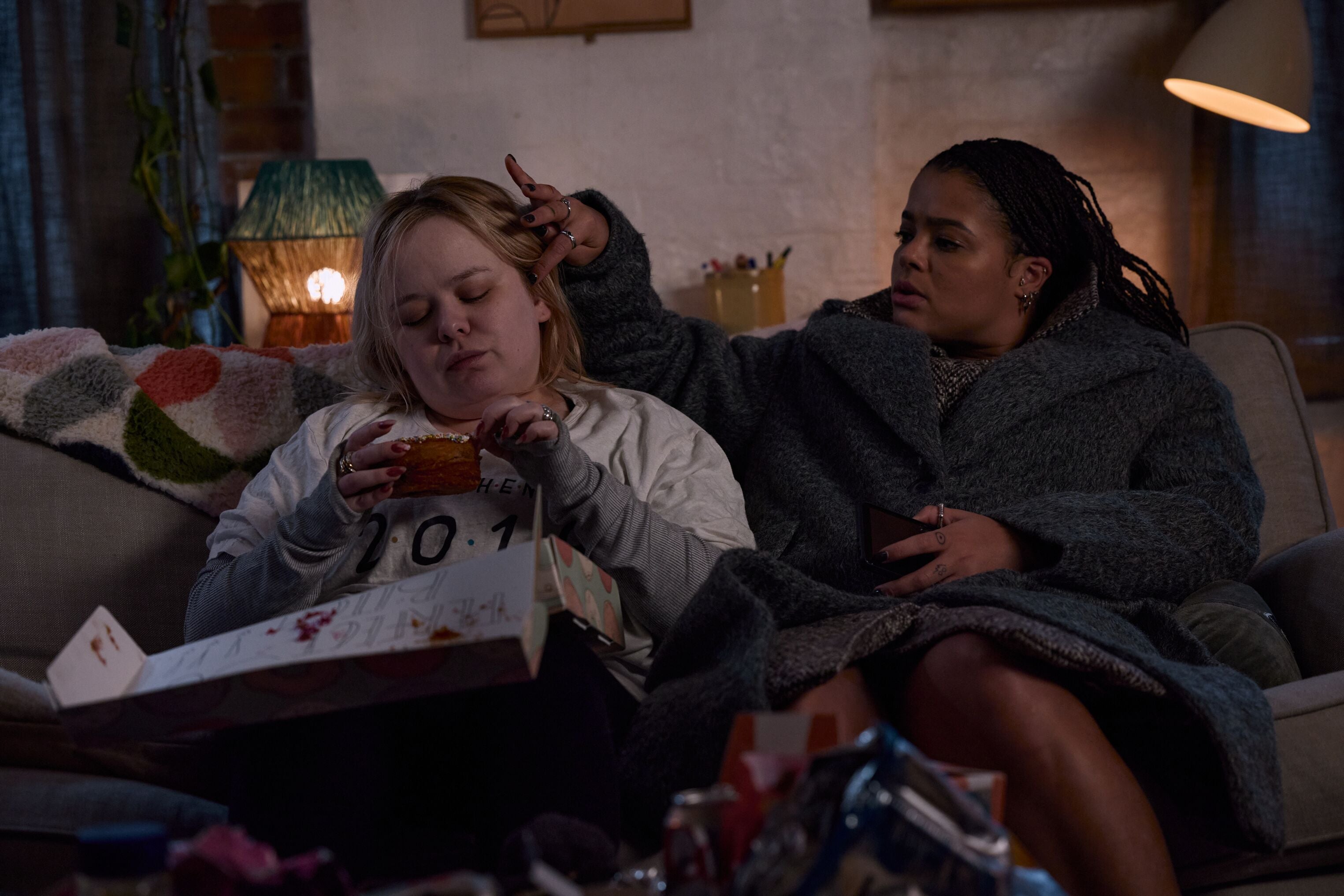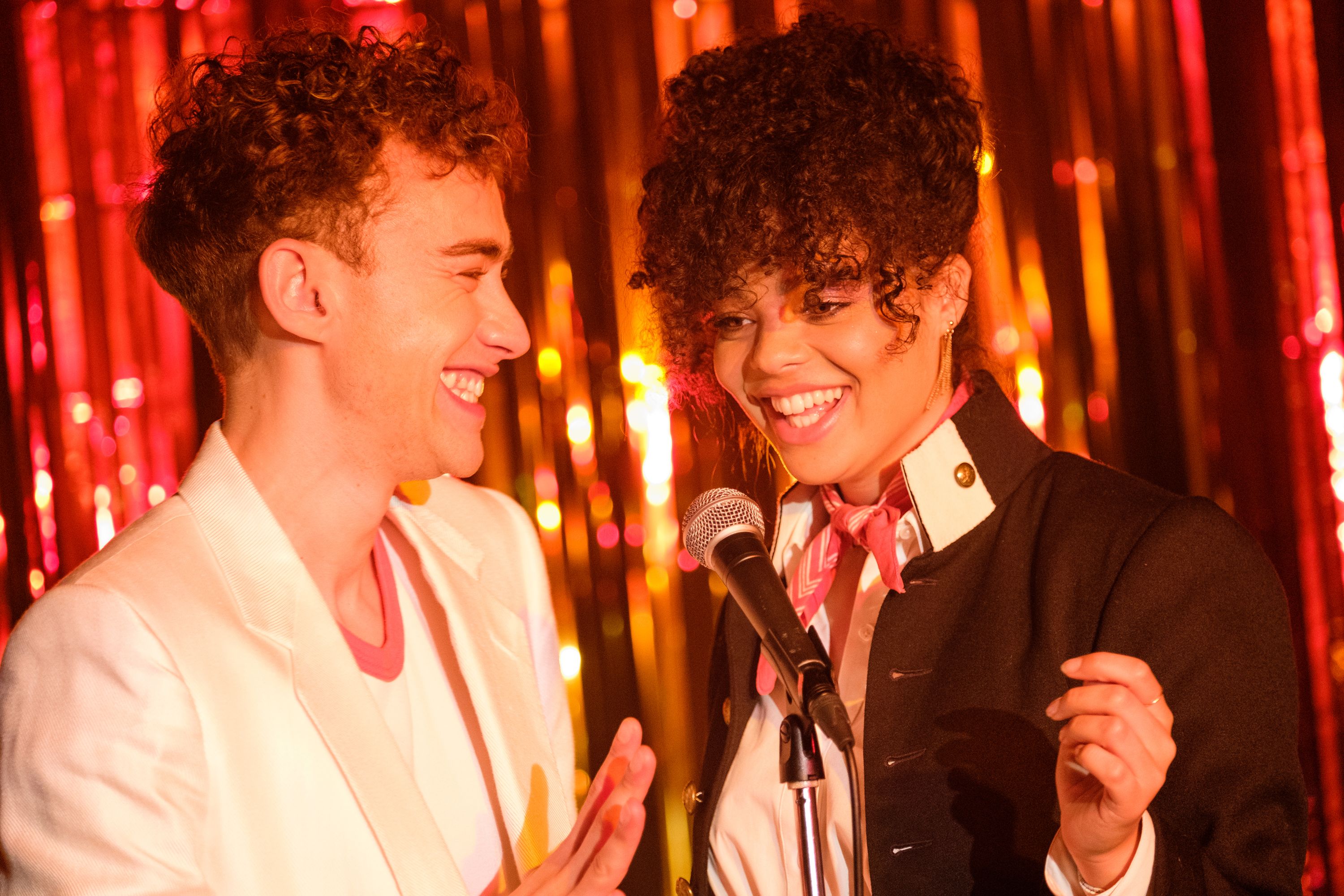Big Mood star Lydia West: ‘People forget about millennials – we’re floating around in the middle, trying to figure out life’
The 30-year-old ‘It’s a Sin’ actor plays the bestie of a woman with bipolar disorder in Channel 4’s new millennial comedy. She speaks to Ellie Harrison about what the show tells us about her generation – and why it doesn’t flinch from ‘the ugly side of mental illness’


Your support helps us to tell the story
From reproductive rights to climate change to Big Tech, The Independent is on the ground when the story is developing. Whether it's investigating the financials of Elon Musk's pro-Trump PAC or producing our latest documentary, 'The A Word', which shines a light on the American women fighting for reproductive rights, we know how important it is to parse out the facts from the messaging.
At such a critical moment in US history, we need reporters on the ground. Your donation allows us to keep sending journalists to speak to both sides of the story.
The Independent is trusted by Americans across the entire political spectrum. And unlike many other quality news outlets, we choose not to lock Americans out of our reporting and analysis with paywalls. We believe quality journalism should be available to everyone, paid for by those who can afford it.
Your support makes all the difference.Lydia West did an extremely millennial thing recently. Heavily pregnant with her first baby and trying not to freak out about the huge life event that was about to happen, the actor who shattered our hearts in It’s a Sin bought a Stanley cup that had gone viral on TikTok. Owning the stainless-steel water bottle made her feel like she was “adulting correctly”. “We see things on social media and think it’s going to change our lives,” she says, laughing. “It’s like we use material things to make the chaos of the world a bit quieter.”
This impulse purchase, and the rationale behind it, could have been a subplot in her new Channel 4 comedy Big Mood. In fact, it is. The show follows two besties, West’s voice-of-reason Eddie and Nicola Coughlan’s wild child Maggie, as they try to navigate their thirties in the hipster mecca of Dalston. In one scene, a mascara-streaked Maggie, who has bipolar disorder and is in the depths of a depressive episode, tells Eddie: “If I could finally get a big Le Creuset, things might really turn around for me.”
Big Mood is madcap, magnificent and millennial through and through – from its stars to the writer (Camilla Whitehill) and director (Rebecca Asher). Cut the show in half and it would bleed avocado toast. There are pop-culture references for my generation in every nook and cranny. Eddie, who owns a rat-infested pub left behind when her dad died, throws Maggie a Love Actually-themed birthday party and the real Joanna Page rocks up with a cake. Maggie tries to “think” her way out of her disorder –like Russell Crowe in A Beautiful Mind. And the two friends are obsessed with their microbiomes and can’t help but scream the lyrics to Avril Lavigne’s “Nobody’s Home” in the car. Their twenties, they remark, were spent on ketamine.
“When I saw the script, I was like, ‘Wow, this is our London,’” says West. Video calling from her home in Walthamstow in northeast London (millennials love Walthamstow), she’s wearing a baggy white tee; her curls are pulled back in a bun. The smile is dimpled and lovely.
“The pop-culture references, the jokes, the way Eddie and Maggie communicate – it just felt so real,” she continues. "Plus, it’s about this idea of having your life together. Having kids and a house and all these things. I just had a child, but I don’t feel like an adult. There’s still a cost of living crisis and we’re all worried about what to do next.” Her portrayal of Eddie – a young woman grappling with who she is while trying to support a friend in need – has just the right balance of f***-it energy and uncertain vulnerability. “I think often people just kind of forget about our generation,” West says. “It’s either about Gen Z or the boomers and we’re just there in the middle, floating around, trying to figure out life.”
But Big Mood isn’t about just any millennial friendship – it’s about one where mental illness is the third wheel, punctures and all. “I fix problems – you have them,” Eddie tells Maggie at one point, summing up their co-dependent dynamic. And for a comedy, it really goes to some difficult places. We see evidence of self-harm on Maggie’s arms; Coughlan spends much of the series dishevelled, with unwashed hair and raggedy clothes; and there are ongoing discussions about lithium, the antipsychotic medication Maggie is taking (which can be toxic and cause hallucinations if the levels aren’t carefully monitored).
“We’re very comfortable now talking about anxiety and depression,” says West. “Our generation, especially, has opened that dialogue. But there’s a lot of stigma still attached to bipolar disorder and mania and schizophrenia. Someone in crisis or being sectioned – that’s often the darker side of mental health slash mental illness, which we’re not 100 per cent comfortable with or we don’t understand yet. But showing the ugly side of mental illness is what this show does really well.”

While Big Mood doesn’t flinch from these weighty issues, it is, at its heart, a comedy. West – a self-proclaimed “drama girlie” with British shows such as Years and Years, It’s a Sin and Inside Man under her belt – has dabbled in a little comedy before, in Netflix’s The Pentaverate with Mike Myers, but it had a very “out there”, American kind of sensibility. Big Mood, by contrast, is “dumb and hilarious and sarcastic and silly”. And West relished experimenting with the deadpan delivery of lines such as, “You don’t care about the environment – you said all humans deserve to burn to death.” (“Yeah, but I only said that because I’d just had that really weird haircut,” comes Maggie’s retort.)
West didn’t always have her sights set on acting. She grew up in Barnet, north London; her mother was a district nurse, her father a support worker for a drug and alcohol abuse charity. She went to a performing arts school and was into dance from a young age, but ended up studying business at Queen Mary University. “After uni I was like, ‘Ooookay, I just need to do something that’s not business,’” she says, cracking up. “I don’t know what I was thinking doing that. Well, to be honest, I was trying to impress my parents. I didn’t yet have a huge sense of self or what I was passionate about.”
‘It’s a Sin’ opened all the doors and allowed me freedom
At the time, she was a member of a local theatre company, a hobby she describes as “literally therapy before I knew what therapy was”. “It was a way for me to escape my mundane life that I wasn’t happy with, a bad relationship and young twenties stuff that was going on.”
West eventually quit her job as a PA and went to Identity School of Acting, where John Boyega and Letitia Wright trained. Soon after that, she was cast as Bethany, a teenager who identifies as transhuman and wants to turn herself into data, in Russell T Davies’s dystopian drama Years and Years. Then came a small role in the BBC’s Dracula series, before another Davies project, the groundbreaking Aids drama It’s a Sin, arrived. West played Jill, a beacon of light based on a real friend of Davies, who sat at many of her gay friends’ bedsides throughout the Eighties, holding their hands as they died.

It’s a Sin landed in January 2021, when the UK was in the grip of the third lockdown, and captured the nation’s attention with its painfully resonant story of a mysterious illness sweeping the country. It won two Baftas, with West also receiving a nod for her radiant portrayal of Jill. “It was a very wild time,” says West. “So much love and heart went into it, and we knew how special it was. Historically, queer shows have a large queer audience, but it’s hard to reach a mass market, so the fact that it did that and it was being talked about and it was striking a chord, we were just thrilled, and we just didn’t expect it.”
That show gave her a huge confidence boost. “It made me feel I could choose projects that have that social impact. I’ve been afforded the opportunity to be a bit more selective and choose stuff that I’m entertained by but that’s also important. It’s a Sin opened all the doors and allowed me that freedom.” Coming back to Channel 4 for Big Mood felt like “a full circle moment”, she says. “It’s such a different genre, but still about an important topic and something that hasn’t really been seen on telly.” She smiles and claps her hands together. “It made me think, ‘Yes! This is what I want from my career.’”
‘Big Mood’ starts at 9pm on Channel 4 on Thursday 28 March
Join our commenting forum
Join thought-provoking conversations, follow other Independent readers and see their replies
Comments